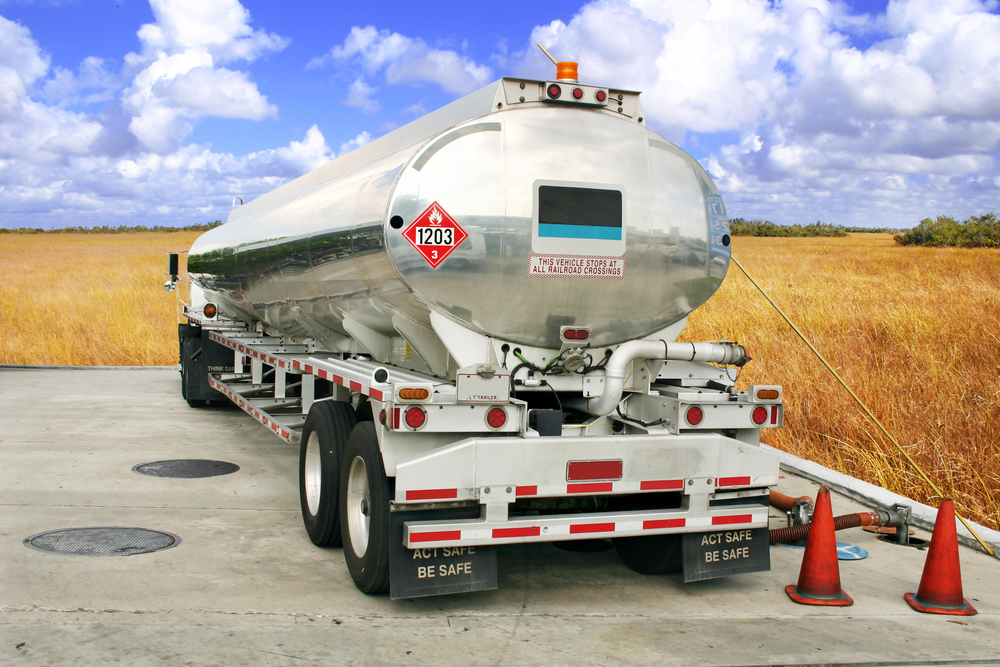 |
There is much confusion concerning who an offeror is under the Pipeline and Hazardous Materials Safety Administrations (PHMSA) Hazardous Materials Regulations (HMRs). PHMSA has numerous interpretation letters that attempt to clarify this issue for individual scenarios. We found two letters we think are pertinent to help you determine whether you are an offeror under the HMRs and help you decide if it is worth the effort and cost to avoid becoming an offeror.
Offeror
The HMRs define an “offeror” of hazardous materials for transportation in commerce as any “person who performs or is responsible for performing any pretransportation function required by the HMRs or who tenders or makes the hazardous material available to a carrier for transportation in commerce. There may be more than one offeror of a shipment of hazardous materials. Each offeror is responsible only for the specific pretransportation functions that he or she performs or is required to perform.”
Note that key to the definition is whether you perform any “pretransportation functions.”
Attend the SPCC Compliance for Aboveground Storage Tanks webinar on March 25 to ensure your tanks and SPCC plan are in compliance. Learn more.
Pretransportation Functions
Functions of an offeror include pretransportation functions, including:
- Determining the hazard class of a hazardous material,
- Selecting the packaging for a regulated hazardous material,
- Filling a hazardous materials package,
- Securing a closure on a filled or partially filled hazardous materials package,
- Marking or labeling packages that contain hazardous materials,
- Providing and maintaining emergency response information,
- Preparing and reviewing shipping papers to verify compliance with the HMRs or their international equivalents,
- Certifying that hazardous materials are in proper condition for transportation,
- Loading, blocking, and bracing a hazardous materials package in a freight container or transport vehicle and segregating the package from incompatible cargo, and
- Selecting and affixing hazardous materials markings or placards on vehicles or packages, or providing placards to a carrier.
One interpretation letter presents a scenario where a hazardous waste generator and a waste hauler split the performance of offeror functions. In this case, the generator and the hauler are both subject to the regulations as offerors. The workers at the generator’s facility who prepare a package of hazardous waste for transportation—such as by selecting a packaging, assuring that the packaging is not overfilled, and securing the closures on the package—are performing offeror functions that directly affect hazardous materials transportation safety even if the waste hauler assumes responsibility for other pretransportation functions and for certifying that the shipment conforms to HMR requirements. In this case, both the generator and the waste hauler are performing offeror functions.
Tip: The generator would not be an offeror if it contracted with a waste hauler to perform all offeror functions associated with the transportation of its hazardous waste. The waste hauler would then become the offeror of the hazardous waste.
Another interpretation letter discusses whether you are an offeror if your employees contact a carrier to pick up a portable tank containing the residue of a hazardous material. Again, in this case, if your employees perform any pretransportation functions to prepare the portable tank containing the residue of a hazardous material for transportation in commerce, you are an offeror for purposes of the HMR.
However, if you contract with the carrier to perform all pretransportation functions related to the residue shipment, including securing the closures on the portable tank, preparing the shipping paper, providing emergency response information, and certifying the shipment is in proper condition for transportation in conformance with HMR requirements, you are not considered an offeror for purposes of the HMR.
SPCC Compliance for Aboveground Storage Tanks: Best Practices for Handling, Inspection, Maintenance, and Operation
Join us March 25 to learn best practices for keeping your ASTs compliant and leak-free. Register now!
Receiving Facilities
If you are the facility designated to receive the hazardous waste or other hazardous materials, you may want to consider not becoming involved in any transportation functions. That means that you don’t want any employees helping unload the material. You want to tell them to “Back away from that truck!”
Transportation Functions
Transportation of a hazardous material in commerce begins when a carrier takes physical possession of the hazardous material for the purpose of transporting it and continues until the package containing the hazardous material is delivered to the destination. Transportation functions include:
- Movement,
- Loading incidental to movement, which includes blocking, bracing, and segregating a hazardous materials package from incompatible cargo,
- Unloading incidental to movement, which includes transloading, and
- Storage incidental to movement.
Tip: So, when a carrier delivers the hazardous waste or other hazardous materials to your facility, tell your employees not to help with the unloading. Wait until the material is on the loading dock and the carrier pulls away.

This material is so dangerous to transport. I believe air caargo is the only way to go.
Global CARGO Aircraft Charter
Consider chartering aircraft for cargo and courier purposes in addition to business or personal travel. For example
* Dangerous or hazardous cargo
* Transport aid to the third world
* Deliver critical energy sector structure to remote regions
* Deliver high value or ‘go now’ cargo goods.
Perhaps your requirements are –
• Heavy and outsize cargo
• High value or perishable cargo
• Humanitarian and aid cargo
• Oil and Gas industry cargo
Be sure your cargo is delivered efficiently, on time and on budget.
Plan all aspects of your cargo charters from aircraft type through to routing and timescale.
To learn more Click HERE: http://goo.gl/21fF5B
[Compensation may be received if products are purchased]